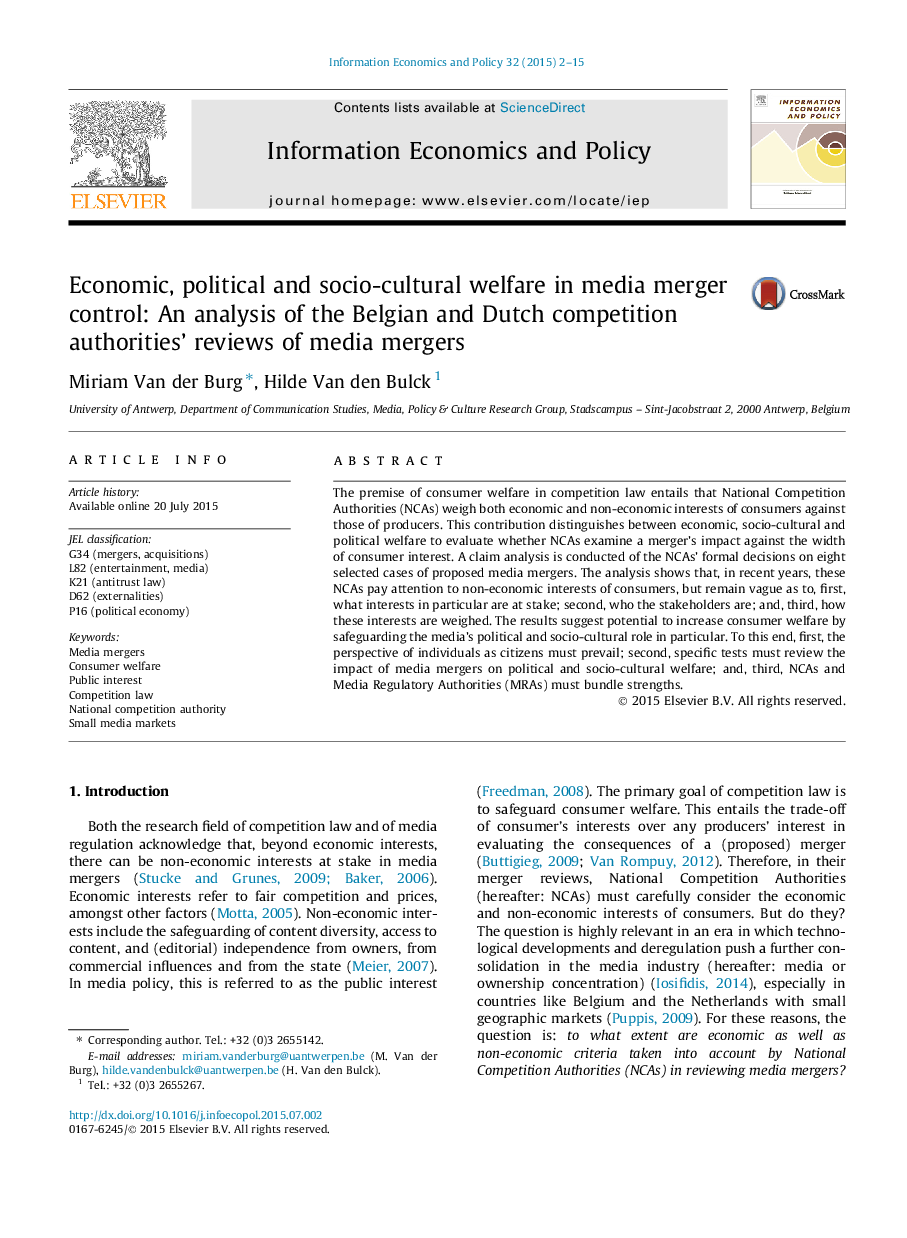| Article ID | Journal | Published Year | Pages | File Type |
|---|---|---|---|---|
| 5075719 | Information Economics and Policy | 2015 | 14 Pages |
â¢NCA's media merger reviews are evaluated against the width of consumers' interests.â¢Theoretical insights from competition law and media policy are brought together.â¢A claim analysis is applied on NCA's reviews of eight media mergers.â¢NCAs pay limited attention to non-economic interests of consumers and remain vague.â¢It is argued that the potential of the concept of consumer welfare can be increased.
The premise of consumer welfare in competition law entails that National Competition Authorities (NCAs) weigh both economic and non-economic interests of consumers against those of producers. This contribution distinguishes between economic, socio-cultural and political welfare to evaluate whether NCAs examine a merger's impact against the width of consumer interest. A claim analysis is conducted of the NCAs' formal decisions on eight selected cases of proposed media mergers. The analysis shows that, in recent years, these NCAs pay attention to non-economic interests of consumers, but remain vague as to, first, what interests in particular are at stake; second, who the stakeholders are; and, third, how these interests are weighed. The results suggest potential to increase consumer welfare by safeguarding the media's political and socio-cultural role in particular. To this end, first, the perspective of individuals as citizens must prevail; second, specific tests must review the impact of media mergers on political and socio-cultural welfare; and, third, NCAs and Media Regulatory Authorities (MRAs) must bundle strengths.
